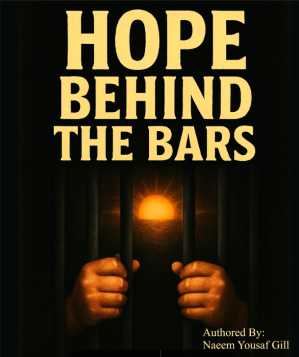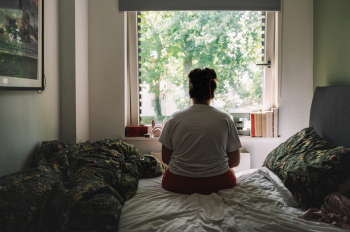
Prisoners from minority backgrounds, particularly Christians, face systemic bias in Pakistani jails and are subjected to abuse by prison staff and Muslim inmates, a new study shows.
They are labeled as “untouchables” and given menial tasks like cleaning toilets, according to the study released on Aug. 15, “Hope Behind Bars,” by the National Commission for Justice and Peace (NCJP), a Catholic church organization.
Among the worst-treated and discriminated prisoners are those charged under the country’s harsh blasphemy laws and other religiously-motivated cases, the report stated.
Zakria John, incarcerated on charges of lynching two Muslims following the twin suicide bombings of two churches in the Christian settlement of Youhanabad, Lahore, on March 15, 2015, told the NCJP about the plight of the Christian prisoners during their detention.
“Approximately 100 Christians faced accusations of lynching two Muslims and engaging in looting and vandalism,” John said. “For nearly three months, our whereabouts remained undisclosed to anyone. During detention, we were forced to drink water from Lotas [vessels typically used in toilets]. One person would open their mouth while another poured water through the same vessel.”
His prison provided only six plates for 100 inmates, John said.
“We took turns eating from these limited utensils. Initially, we were confined to a room previously used for tuberculosis patients, with used syringes scattered throughout,” he said. “We remained in these conditions for three months. A worker occasionally provided us with soap fragments, though he faced questioning when discovered. After using the toilet, we often had to clean our hands by rubbing them against the wall.”
After three months they were allowed visits from family, who brought plates, soap and other essential items, he said.
“Later, fellow inmates informed us that soap, blankets and other necessities were supposed to be provided by the jail administration,” John said. “However, we were systematically denied these basic provisions.”
Once the religious identity of prisoners becomes public, officials treat Christian and Hindu inmates poorly, assigning them menial tasks and refraining from offering them the remission in sentences that are offered to Muslims, according to the study, conducted between May 2023 and March 2025 at 128 prisons in six regions – Punjab, Khyber Pakhtunkhwa, Sindh, Balochistan, Pakistan-administered Kashmir and Gilgit-Baltistan.
“Prisons in Punjab and Khyber Pakhtunkhwa provinces gave remission in sentences for 1,937 Muslim prisoners between 2022 and 2025 for memorizing the Quran or observing Ramadan,” the report stated. “However, Christian, Hindu, and Sikh prisoners were not allowed similar benefits.”
Prisoners who memorize the Quran receive a six-month sentence remission, according to Prison Population Rule 215 of the Pakistan Prisons Rules of 1978, applicable across all provinces. Additionally, Rule 214 grants one month of remission for observing Ramadan fasting.
Hundreds of Muslim prisoners have benefited from these remissions annually since the rules’ enactment, the study found.
“While these regulations theoretically allow prisoners from religious minorities to receive similar remissions under Rule 215 through examinations demonstrating comprehension of the Geeta, Bible, and Guru Granth Sahib for Hindu, Christian, and Sikh convicts, respectively, implementation remains absent,” the study noted.
Similarly, the Sindh Prisons and Corrections Service Act 2019, Chapter XXXIII, Section 787 permits educational remissions, while Section 789 awards special remissions for regular prayers and Ramadan observance. The Act also provides remissions for studying Christian and Hindu holy books (the Bible and the Geeta).
“However, federal and provincial governments have failed to approve the necessary syllabus, effectively depriving minority prisoners of their right to sentence remission based on religious education and character improvement,” the report stated.
The NCJP urged federal and provincial governments to address the religious discrimination in remission policies for prisoners; ensure provision of basic education for minority prisoners; allow civil society organizations to educate minority prisoners about remission rules and procedures for both formal and religious education programs; ensure transparent data collection of minority prisoners; improve mental health services, especially for inmates facing capital punishment; and ensure stronger safeguards against torture, including confidential complaint systems to help the prisoners.
As of March, Punjab Province’s correctional facilities housed 1,588 minority prisoners, of which 1,315 were under trial, 232 were convicted, 34 were unconfirmed condemned prisoners and seven were confirmed condemned prisoners, according to the study.
“This represents an increase from May 2023, when 1,317 prisoners belonging to minority faith communities were confined in various Punjab prisons, comprising 1,144 under trial, 140 convicted, 26 unconfirmed condemned and seven confirmed condemned prisoners,” the report stated.
Of Sindh Province’s total confined population of 19,447 prisoners, 133 belonged to religious minorities. Khyber Pakhtunkhwa Province’s jails held 27 minority prisoners (25 Christians and 2 Hindus), NCJP found.
Pakistan ranked eighth on Open Doors’ 2025 World Watch List of the most difficult places to be a Christian.






